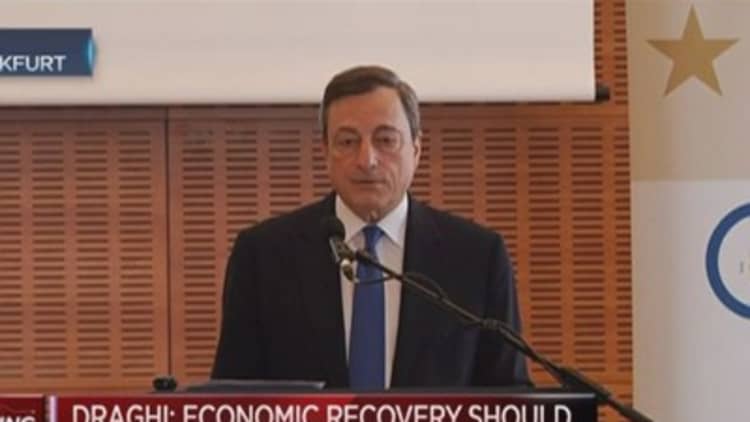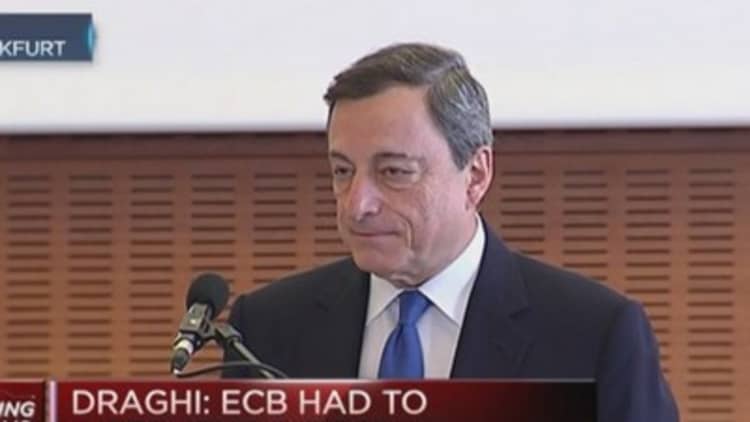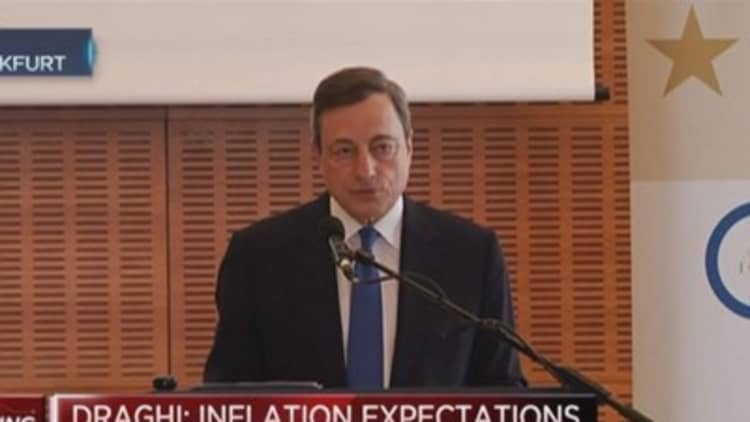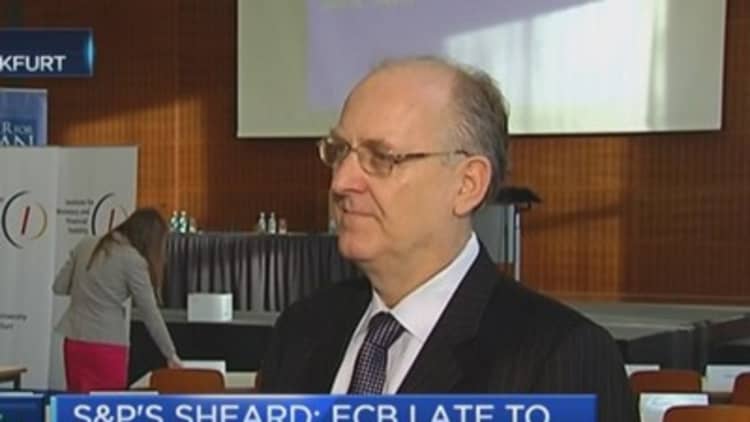


The extra liquidity provided by the European Central Bank (ECB) could pose risks to the region's financial stability, according to Mario Draghi, the central bank's president.
Addressing an audience in Frankfurt, he said the new policy measures may entail some risks, but stressed that these risks were "contained."
"Should they emerge, macroprudential policy is best suited to address them," he said.
Draghi's long-awaited quantitative easing (QE) program kicked into gear on Monday – a move that has further suppressed benchmark sovereign bond yields in the euro zone.
"Our purchases reduce returns on safer assets," he said. "This encourages investors to shift to riskier, higher-yielding assets. Pension funds, banks and other market participants that we buy securities from are likely to substitute these for other long-term assets, thereby eventually pushing up prices more broadly."
Market reaction since the launch of the bond-buying program on Monday was evidence that asset-purchasing can work for the euro zone, Draghi added. He said this policy was unconventional but "not unorthodox," and stated that it could shield countries from contagion from Greece.
Draghi was speaking at a conference organized by the Center for Financial Studies in Frankfurt, Germany. It's billed as a chance for the academics, central bankers, financial market participants and journalists to discuss European monetary policy with the ECB.
The ECB's massive bond-buying program will involve 60 billion euros a month ($66.3 billion) being pumped into the struggling euro zone economy in an effort to restore the inflation rate back to targeted levels and help boost growth in the region. Officially called the Public Sector Purchase Program (PSPP), the central bank has been buying up public and private sector securities and stated last week that there is "no duration target for the program."
Sovereign yields - which are already at record lows for many countries - have crunched lower as the buying began on Monday. The spread between the 10-year U.S. Treasury and the 10-year German bund has widened out to its widest level in over 25 years. On Wednesday, the yield on the benchmark 10-year German bund was 0.199 percent, after starting 2015 at around 0.5 percent.
The extra cash that has flooded the economy has also caused the euro to fall to a 12-year low against the dollar, which is set to buoy the region's exporters further. Stock indexes have also outperformed their U.S. counterparts this year, although concerns over a rate rise by the U.S. Federal Reserve has dented sentiment this week.

Paul Sheard, the chief global economist at Standard & Poor's, told CNBC on the outskirts of the event that the euro looks to be edging even lower against the greenback. In recent days economists have been busy discussing their predictions on when this year it could reach parity with the dollar.
Sheard, echoing Draghi, said that it's only the right policy mix that would help Europe back from its current environment of deflation and low growth, rather than just a bond-buying program. He argued that it's a "game changer" in terms of a policy shift for the ECB but added that it would be no silver bullet for the economy.
"Aggregate demand is extremely depressed," he said, paying particular attention to the peripheral countries like Greece.
Volker Wieland, who is a member of the German Council of Economics Experts - the so-called "wise men" who advise the German government - spoke of his reluctance for the ECB to start its aggressive monetary policy. He told CNBC on the outskirts of the event that the ECB should have waited to conduct its sovereign debt purchases until the region was in a "serious deflation stage." He argued that the fall in oil prices has distorted the figures.
"(It's not) something where you need to ease dramatically further...policy was already quite easy," he said.
The euro zone has had a mixed bag of economic data this week that has done little to shine a light of any potential recovery. France's industrial output numbers rose again in January, according to fresh numbers on Tuesday, with an increase of 0.4 percent. However, Italy's figures posted a sharp fall of 0.7 percent in January from December.



